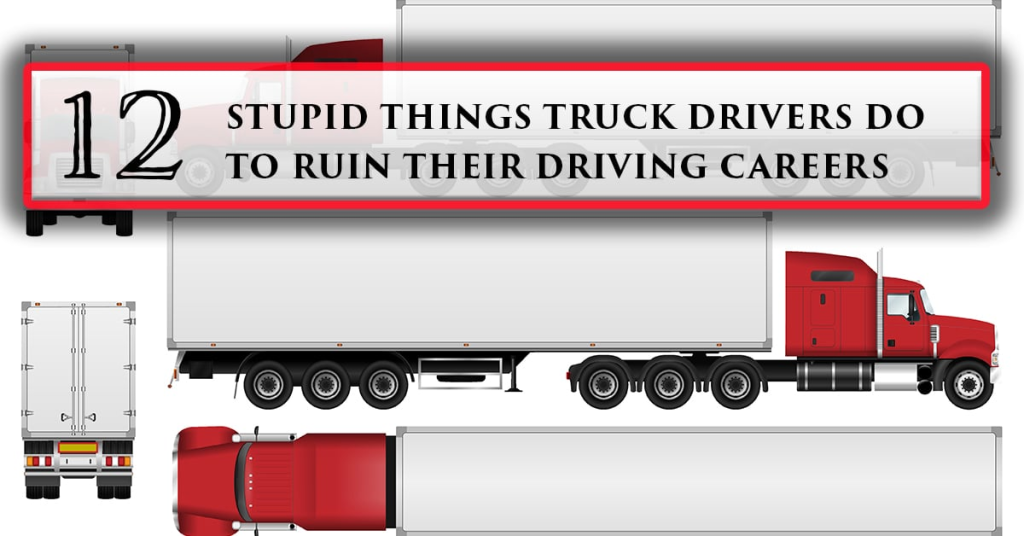Finding reputable Trucking Companies That Don’T Use Dac can be challenging, especially for drivers concerned about maintaining a clean driving record. Many carriers report driver history to the DAC (Drive-A-Check) system, which can impact your future employment opportunities. Choosing companies that operate without DAC reporting gives drivers more flexibility while still ensuring safety and compliance.

What Is DAC and Why Some Drivers Avoid It
DAC, or Drive-A-Check, is a database used by trucking companies to track driver performance, safety incidents, and employment history. While it can improve safety across the industry, some drivers prefer to work with companies that don’t report to DAC for reasons such as:
- Avoiding potential blacklisting from future employers.
- Maintaining privacy regarding minor incidents or non-critical violations.
- Seeking second-chance opportunities after prior infractions.
Expert Insight: According to industry analysts, non-DAC carriers often implement internal safety programs to monitor drivers without submitting data to external systems like DAC.
How Non-DAC Trucking Companies Operate
Safety Practices
Even though they don’t report to DAC, reputable non-DAC carriers still maintain high safety standards:
- Regular Vehicle Inspections: Routine maintenance schedules to prevent breakdowns.
- Driver Training Programs: Onboarding and continuing education to ensure compliance with FMCSA rules.
- GPS and Telemetry Monitoring: Internal tracking for efficiency and accident prevention.
Advantages for Drivers
| Advantage | Explanation |
|---|---|
| Privacy | Driver incidents are not automatically shared with DAC database. |
| Second Chance | Drivers with minor infractions can still find employment. |
| Flexible Policies | Often more lenient on employment gaps and driving history. |
How to Identify Non-DAC Trucking Companies
- Direct Inquiry: Ask recruiters if the company reports to DAC.
- Online Research: Look for driver forums and reviews mentioning non-DAC operations.
- Check Safety Records: Ensure company complies with FMCSA safety standards even without DAC reporting.
- Evaluate Company Size: Smaller regional carriers often do not report to DAC.
Pros and Cons of Working for Non-DAC Companies
Pros:
- More employment opportunities for drivers with past incidents.
- Privacy protection regarding driving history.
- Often flexible routes and schedules.
Cons:
- Some non-DAC carriers may offer lower pay compared to larger DAC-reporting companies.
- Limited access to national or cross-country freight networks.
- Some companies may lack formalized training programs.
External Reference
For more information about trucking safety regulations and driver records, see Wikipedia: Commercial Driver Safety.
FAQ Section
Q1: Can I still get insurance if I drive for a non-DAC company?
A: Yes, but insurance premiums may vary depending on your driving history and carrier policies.
Q2: Are non-DAC trucking companies legal?
A: Absolutely. All carriers must comply with FMCSA regulations; DAC reporting is optional.
Q3: Will working for a non-DAC company affect my future job opportunities?
A: It can be beneficial, especially if you want to avoid negative DAC records. Some employers prefer DAC history, so disclosure may be required.
Q4: How do non-DAC companies track driver safety?
A: Many use internal logs, GPS tracking, and in-house safety audits to monitor performance.
Q5: Are pay rates different at non-DAC carriers?
A: Pay may be slightly lower on average, but benefits like flexibility and second-chance employment often compensate.
Q6: Can I switch from a non-DAC company to a DAC-reporting company?
A: Yes. As long as your driving record is clean, switching is possible without penalty.
Conclusion
Working with Trucking Companies That Don’t Use DAC offers drivers privacy, second-chance opportunities, and flexibility without sacrificing safety. By carefully selecting reputable non-DAC carriers and understanding their operations, drivers can maintain a successful career while protecting their driving history. Share this guide with fellow drivers exploring non-DAC opportunities to help them make informed decisions.

Leave a Reply